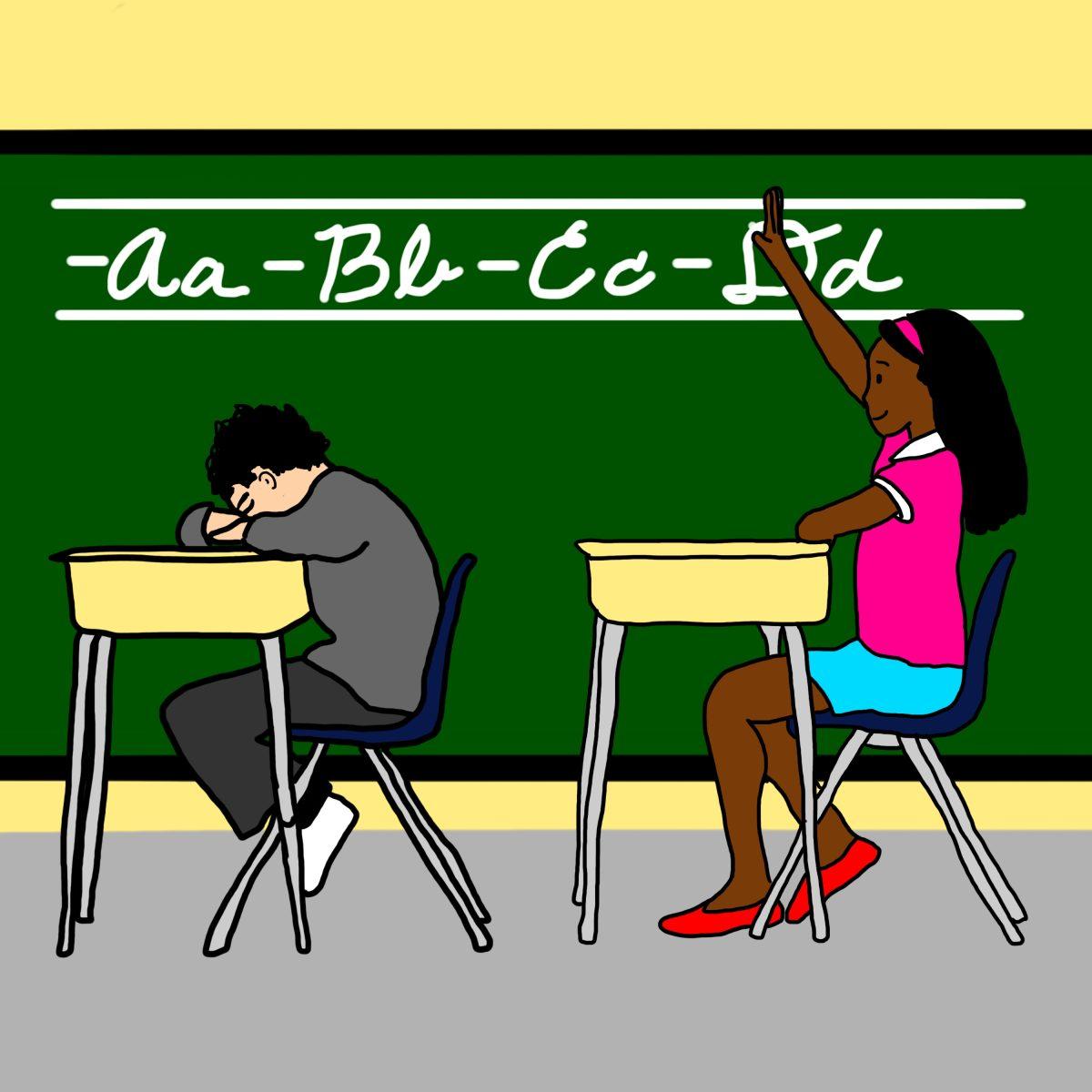In a time with such a delicate political climate, basic schoolyard games such as tug-of-war have changed into tug-of-peace, and tag in one way or another has either been banned or adjusted at several schools around the country. While most of the reasoning behind these bans or reforms are said to be for the child’s safety, it may be harmful psychologically, especially to young boys. From an early age, the ways boys and girls play differs greatly. This type of reform in the schoolyard and within the classroom puts a burden on young boys and unfairly suppresses their masculinity.
On the playground, boys choose to play as superheroes or cops and robbers as a way of ridding themselves of energy and pent-up aggression. This type of play, however, is highly censored by teachers and staff when it should not be. Roughhousing allows for children to communicate non-verbally and verbally, and negotiate on rules in which they abide by during their games they create, as well as building emotional intelligence. This also gives way to the importance of recess; children cannot be expected to sit in a classroom all day and should be allotted up to 30 minutes of daily leisure. Some schools only have a 20 minute recess, even though organizations like the American Academy of Pediatrics recommend them to be an hour long.
Recess itself is crucial to the growth not only of boys but girls as well. Young children need to have downtime between the complex challenges of their classes. Without recess, children are more likely to not pay attention and become more fidgety, therefore it does no good to keep the children from being outside.
However, boys are not only affected outside of the classroom but also inside. Schools across America have started to restrict what children do and how they play. A 7-year old in Baltimore was suspended from school for biting his Pop Tart into the shape of a gun, and another 8-year old in Arizona was threatened with expulsion for drawing Halloween costumes that included knives and other weapons. These young boys are unfairly targeted because of how they play, but for most, it is just how they are naturally programmed to be.
What these schools are taking from children is their masculinity. Gender differences between boys and girls, specifically their aggression, have proven to be real, and such differences can be seen as early as the age of 2. There is a large difference between natural masculinity, the desire to compete and be better than another man, versus hyper-masculinity, which is just a large exaggeration of regular masculinity. Regular masculinity should not be frowned upon but instead supported by people who teach and shape these children.
As a solution to these problems, school systems should reform or repeal the “zero tolerance policy” and replace it with something more effective. In 2007 it was found that male students in 9th through 12th grade were nearly twice as likely to be suspended in comparison to girls (32 percent vs. 17 percent). If policies like this are going to unfairly target boys because of such a strictly enforced code of conduct, there should be change to allow boys to be who they are while still allowing for the use of punishment when truly needed, such as a fight between 2 students and not something so innocent as a picture of superheroes or pirates with blood drawn.
-Katelyn Moriarty is a political science sophomore
Categories:
The War on Boys
October 30, 2017
Illustration by Israel Gonzalez | Staff Illustrator
0
Donate to The University Star
Your donation will support the student journalists of Texas State University. Your contribution will allow us to purchase equipment and cover our annual website hosting costs.
More to Discover








